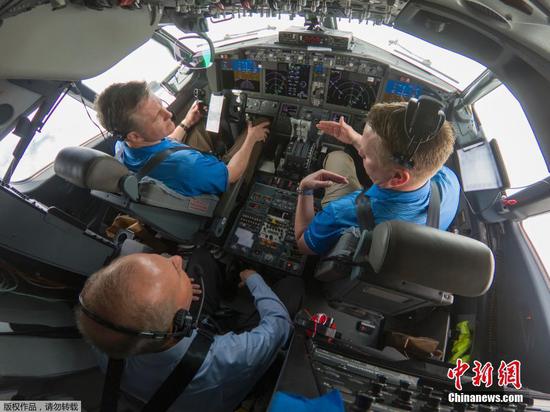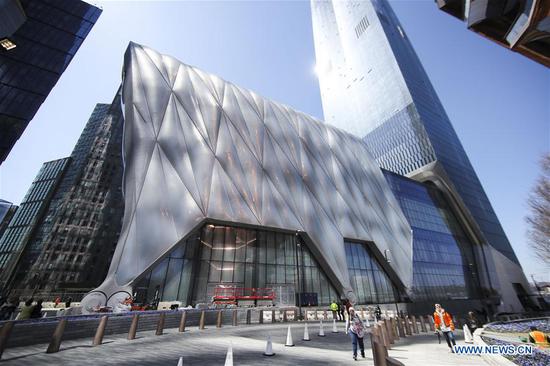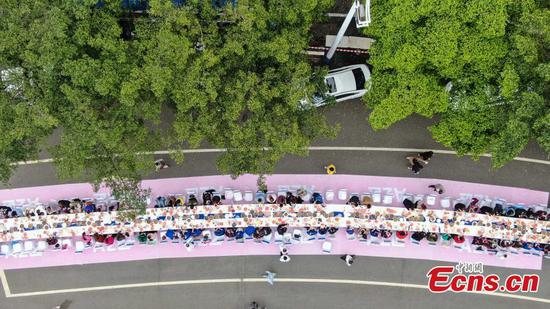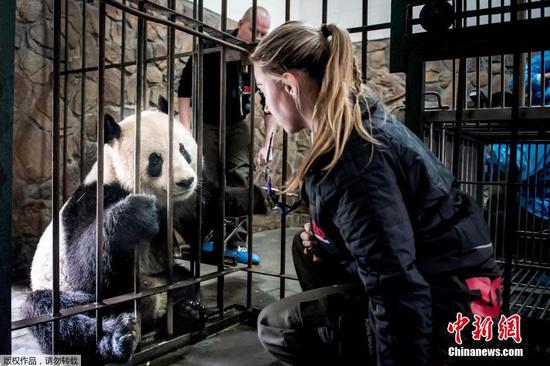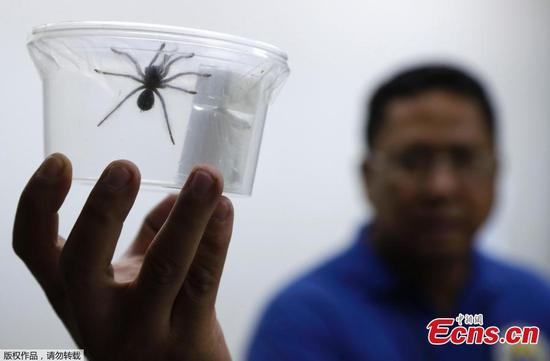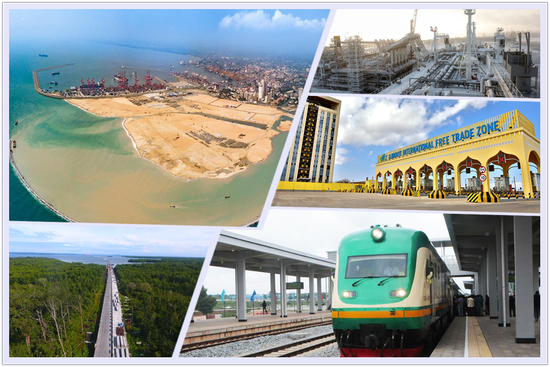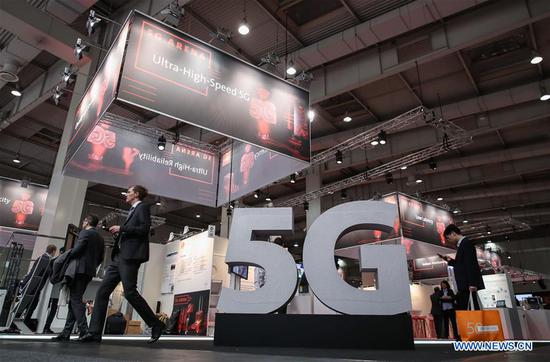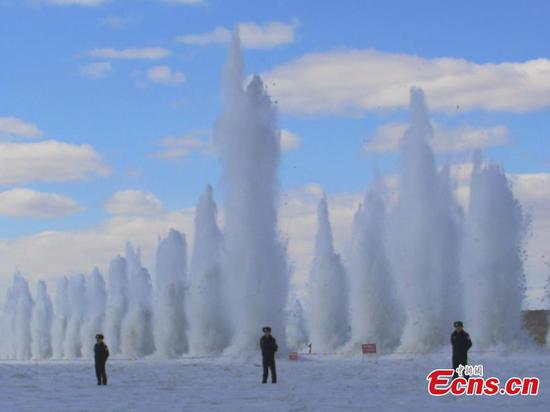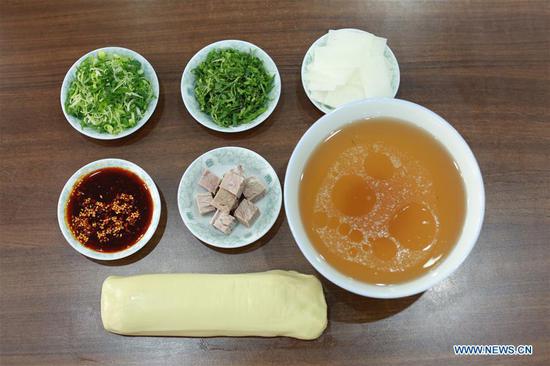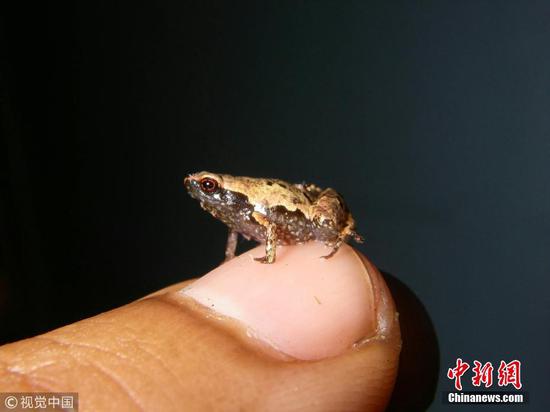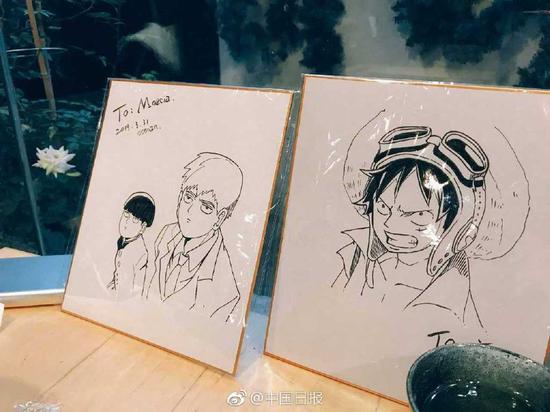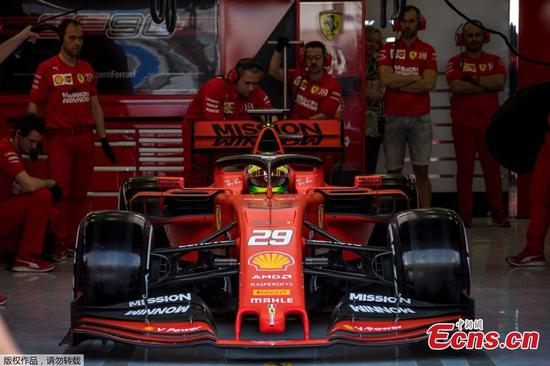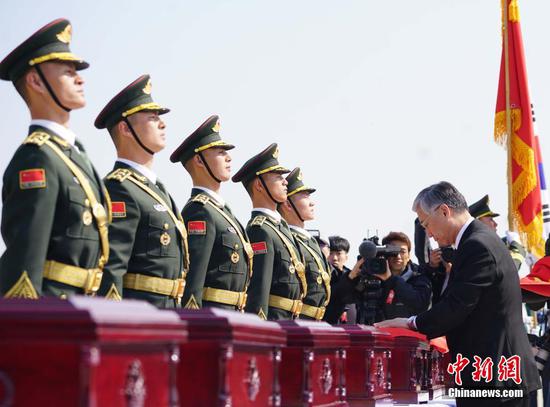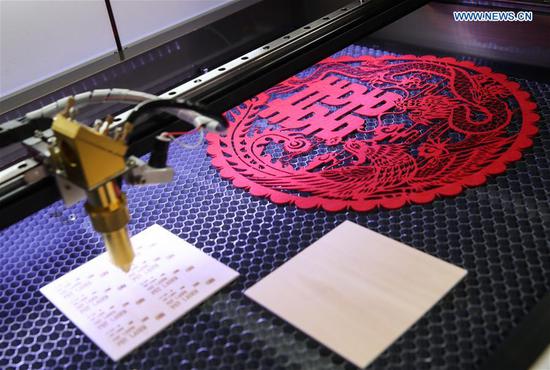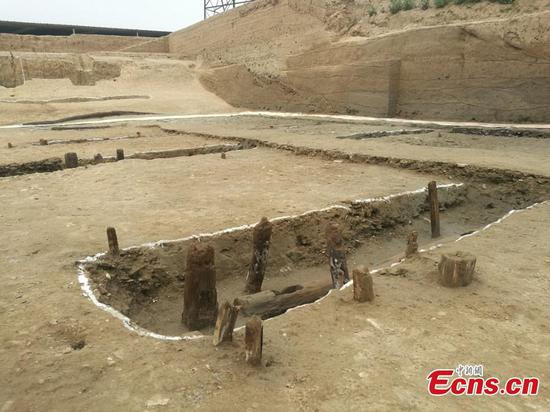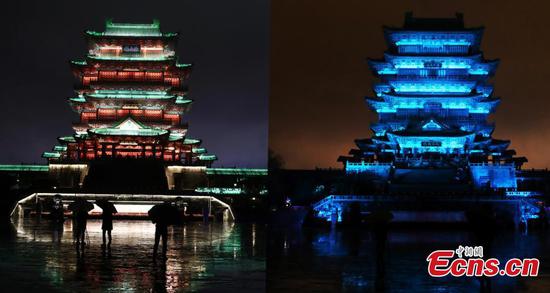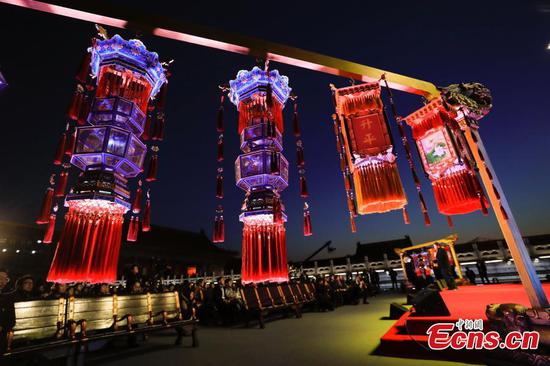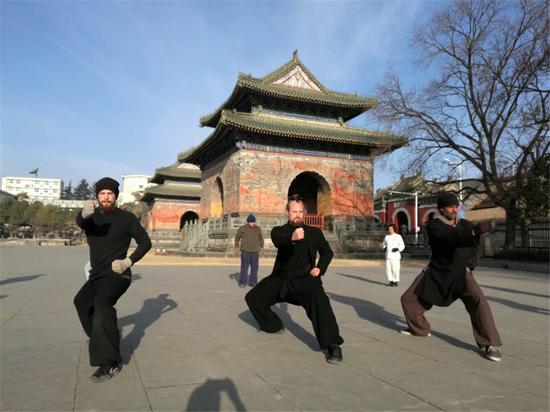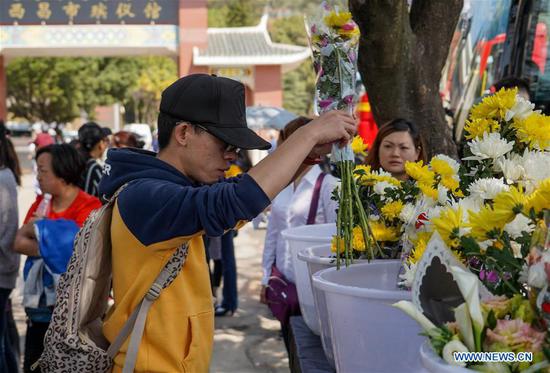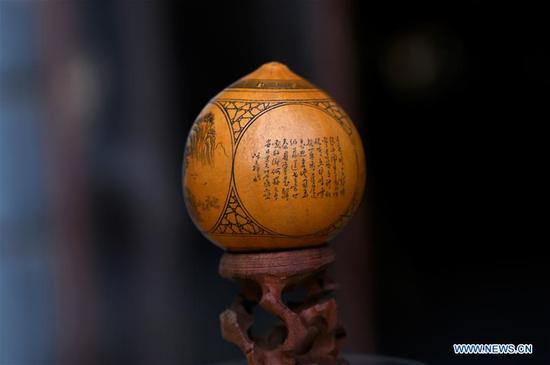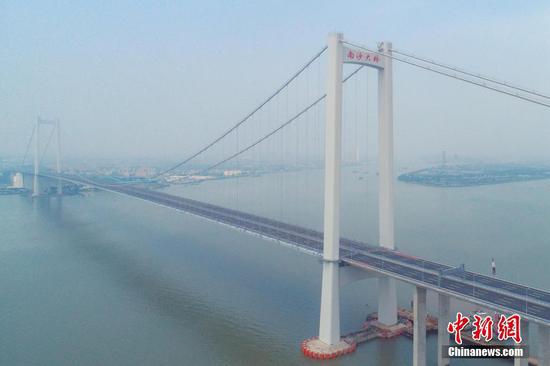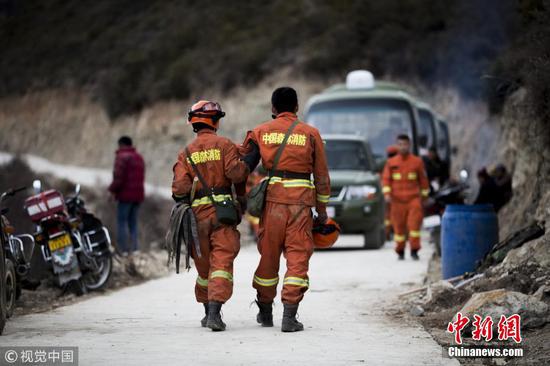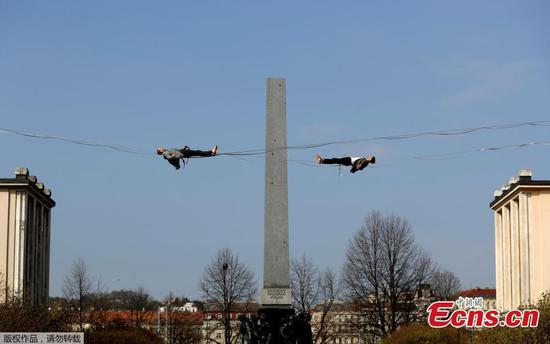As the world's largest industrial trade fair, the Hannover Messe presents the latest progress in industrial technologies.
Under the theme of "Integrated Industry -- Industrial Intelligence," Hannover Messe 2019, which attracted 6,500 exhibitors from 75 countries and regions, concludes here Friday.
Among the exhibitors, around 1,400 are Chinese, including renowned tech giants as well as less-known but dependable hardware suppliers, contributing both "brains" and "brawn" to the ongoing industrial evolvement.
FUTURE WISDOM
The use of 5G and artificial intelligence (AI), which are considered as key elements in the era of Industry 4.0, has been in the spotlight of the exhibition.
Though some of the related technology are still experimental, a couple of concrete showcases have already been presented in real operations among several Chinese exhibitors.
One of the net devices on display at Huawei booth, a little plain white box called LampSite, drew mass attention from global manufacturers as it is one of the few solutions for 5G indoor coverage.
Not like making phone calls that humans can tolerate the bad signal or high latency, the data transfer in the industry should be quick and reliable with low latency, said An Xueli, an engineer at European Research Institute.
"In industrial use, a minor interval (of signal) might put the whole production process on hold, and the loss could be huge," said An, adding that the newly-released LampSite has broken several technical bottlenecks, thus drawing more and more customers.
So far, Huawei has established research cooperation with several European operators, including Vodafone, Deutsche Telekom, and Telefonica, according to a press release.
Besides Huawei, China's home appliances giant Haier brought its latest AI application into the production scenario. A hemispheric device, installed with AI camera and sensors, can identify potential dangerous situations such as workers not wearing safety helmets, dropping or rising temperatures, or air conditioners becoming "unhealthy", and so on.
"It has collected some sample scenarios, and will accumulate more samples from its users thus it get smarter and smarter after the constant learning process," said Shi Heng, technical director of Haier Institute of Industrial Intelligence.
Shi added that the learning data will be shared on its industry cloud platform COSMOPlat and companies could use it and feed data back on it, generating a good cycle.
The platform drew attention from Henning Kagermann, former chairman of the executive board and chief executive officer of SAP AG, a market leader in enterprise application software.
Kagermann said nowadays some large enterprises have promoted the industrial platform while Haier's model placed focus on the interaction with users, which can be "competitive and has a comparative advantage."
"I can see that China's industrial transformation is growing faster, and (that) enterprises know the outside world," said Kagermann. "They are offering solutions and bringing competition, which is a good thing."
As a partner with many Chinese companies, the international automation company ABB is also impressed by China's AI research capability.
ABB is now working with Chinese universities and has more than 2000 research and development (R&D) people localized in China, Ulrich Spiesshofer, chief executive officer of ABB Group told Xinhua.
"I think China is a true power house of AI," said Spiesshofer. "The education is very strong, and the intellectual property that has been created is strong."
PRESENT STRENGTH
The Hanover Messe symbolizes the development of industry technology in its 72 years of history. The fair saw a display of cutting-edge technologies and visionary plans, and the gathering of manufacturers of industrial equipment and basic components.
Some Chinese companies, less known to the genral public, have actually been long trusted suppliers of hardware. As some foreign traders put it, made-in-China devices and equipment are "the hard basis for future industry."
In the global industry chain, China now plays a vital role in providing indispensable materials and parts, said Felix Rehwald, spokesman of a German wind power company Enercon.
Chen Feinan, general manager of Zhejiang Chinc Electrics, said the company has been providing low-voltage electrical products, power transmission and distribution equipment, as well as automobile parts to many German enterprises, some of which are initiators of the concept of Industry 4.0.
"We are also catching up with the latest trend with our partners, for example green energy solutions," said Chen. "On the first day of the trade fair (alone), over a hundred people, many of whom are potential customers, showed interest."
Guangdong Jaten Robot &Automation has been providing transportation vehicles, or Automatic Guided Vehicles (AGVs), the key component for smart logistics and for many global leading corporations, including Mercedes Benz, Volkswagen, A.O. Smith, ZEISS, etc.
The AGVs, mounted with AI unit, can locate certain materials and place them onto the designated areas. Some prototypes are able to carry components weighing up to 700 kg in the factory, while others can carry containers up to 10 tons, according to Liang Xiaoxi, marketing director of the company.
"One vehicle can replace as many as three workers," said Liang. "We also received many orders with special designs that are suited for future needs."
"The big companies might have many ideas of the future industry, and we're playing our part to consolidate them." said Liang.
(Xinhua reporters Yan Feng, Ren Ke, Zhang Jiawei, Zhang Yirong, Shen Zhonghao, Li Meng, Li Jizhi, Shan Yuqi, Lian Zhen, Yu Yue also contributed to the story.)











